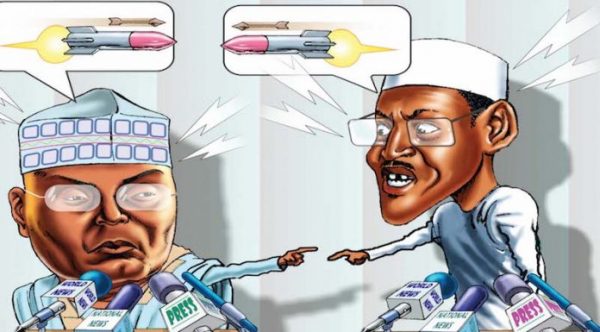The much-awaited presidential campaign season began officially on Sunday, 18th November as the ban was lifted by INEC. However, not until the 1st of December will counterpart governorship candidates have a go at going head to head in their respective states with their promises to the people and campaign proper.
Now that the ground is set for the national democratic contest, the real debate on which candidate or party is best suited to steer the ship of the nation has been triggered.
Consequent upon this development, the first major public step the All Progressives Congress (APC) took was to release a policy document titled ‘Next Level’ on behalf of its presidential candidate, President Muhammadu Buhari.
The People’s Democratic Party’s (PDP) candidate, Alhaji Atiku Abubakar, however, promised to reveal his own policy document on the 19th of November, by noon. Nonetheless, the old policy document he has campaigned with in the past kept circulating within some circles and pundits are taking both policy documents to the cleaners.
More manifestos and policy documents are expected to roll out from each of the 63 political party candidates contesting the presidential elections during the week.
Certainly, the zeal, pomp and the camaraderie with which all this is being done has surely raised the bar higher on the ideal for how national politics should be properly conducted going forward.
But the main issue to ponder upon at the moment should rather be: are these campaign promises worthy enough to be trusted by the people? Can we even get to separate the candidate from the flag-giving political party under which a candidate is contesting from? Can a candidate disown promises made on his behalf by the political party like some have done in the past?
It is still fresh in our memories how the APC and the Buhari presidency denied each and every vague promise which went public via the APC machinery in 2015. It will be a good time for Nigerians to be meticulous in separating the promises that a party made from that of the candidate to avoid conflicting issues of credit in the future.
That the Atiku candidacy is pushing forward a policy document personally from his own campaign office indicates a level of preparedness and readiness to own up to all promises made. As much as the APC policy document is lofty in optimism, it is not good enough that it is coming from under the stables of the APC and not the Buhari personality itself. Whatever it is, a candidate is a different entity from the party and the extent to which each can take responsibility for lofty promises varies across board.
In totality, it is a huge step that the polity has moved a little more forward in encouraging issues-based politicking rather than the old do-or-die affair and bamboozle politics which we used to know.
This is the time when citizen interest in how the country is governed should be piqued. When everything is clearly stated in black and white as is with political policy documents, each citizen can have access to critiquing and choosing better which of the myriad candidates would fit best as the president, governor, legislator or whichever elective positions are applicable to their demography.


